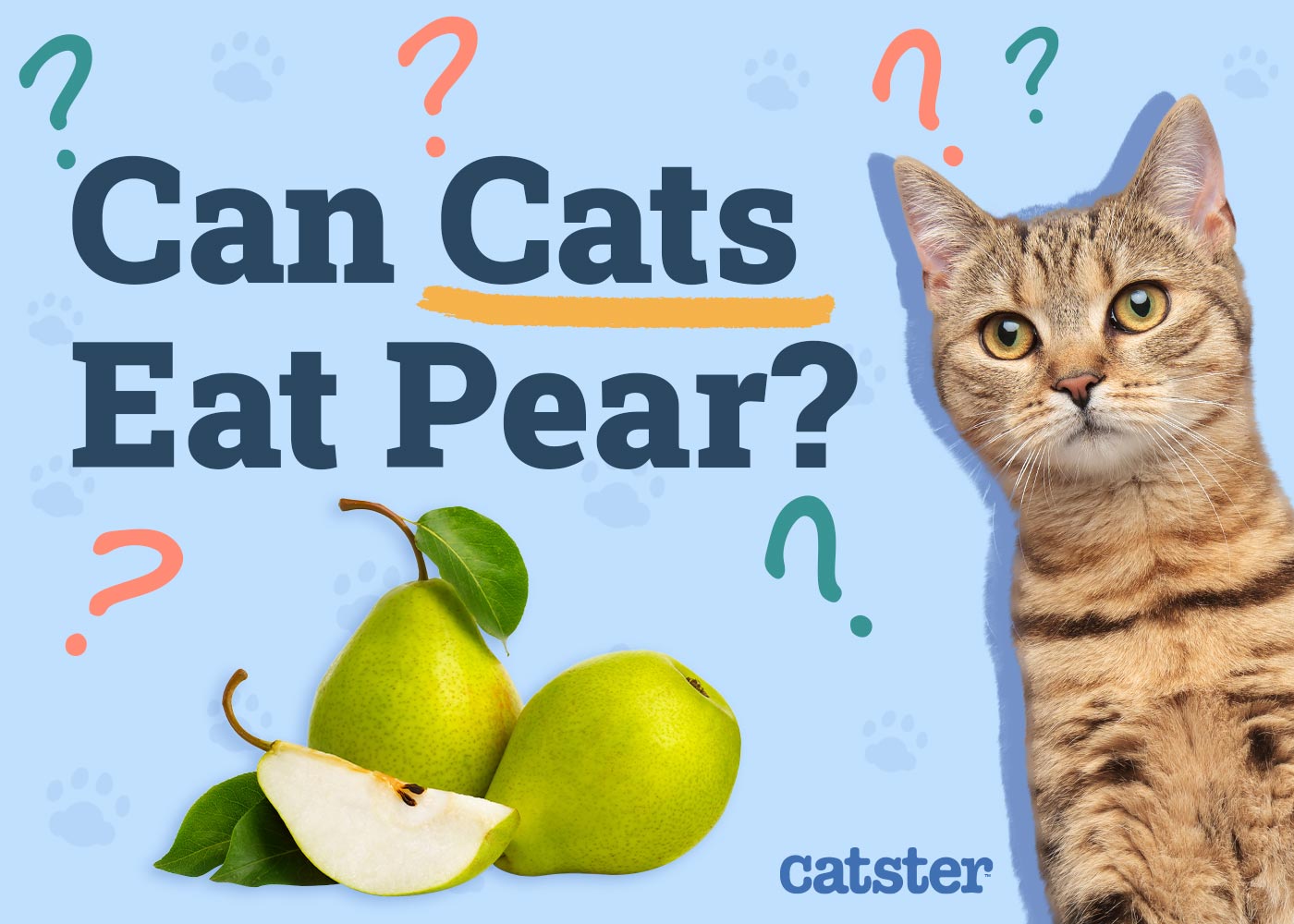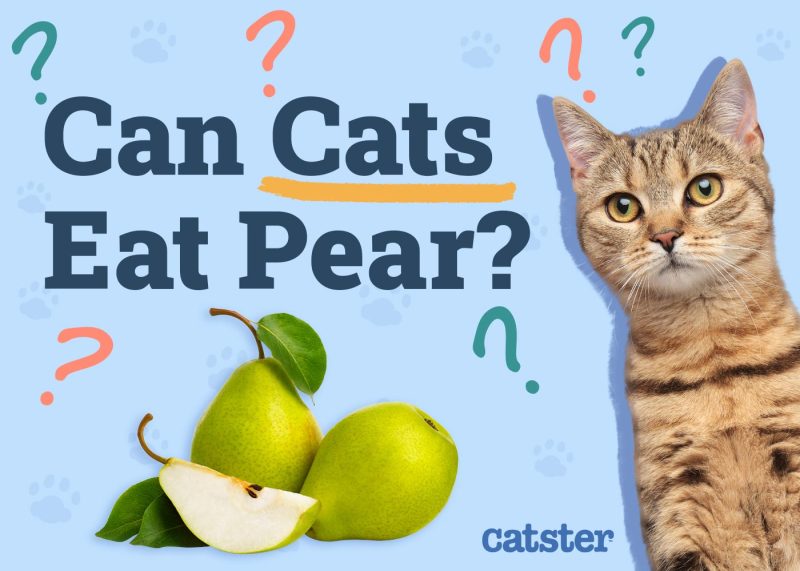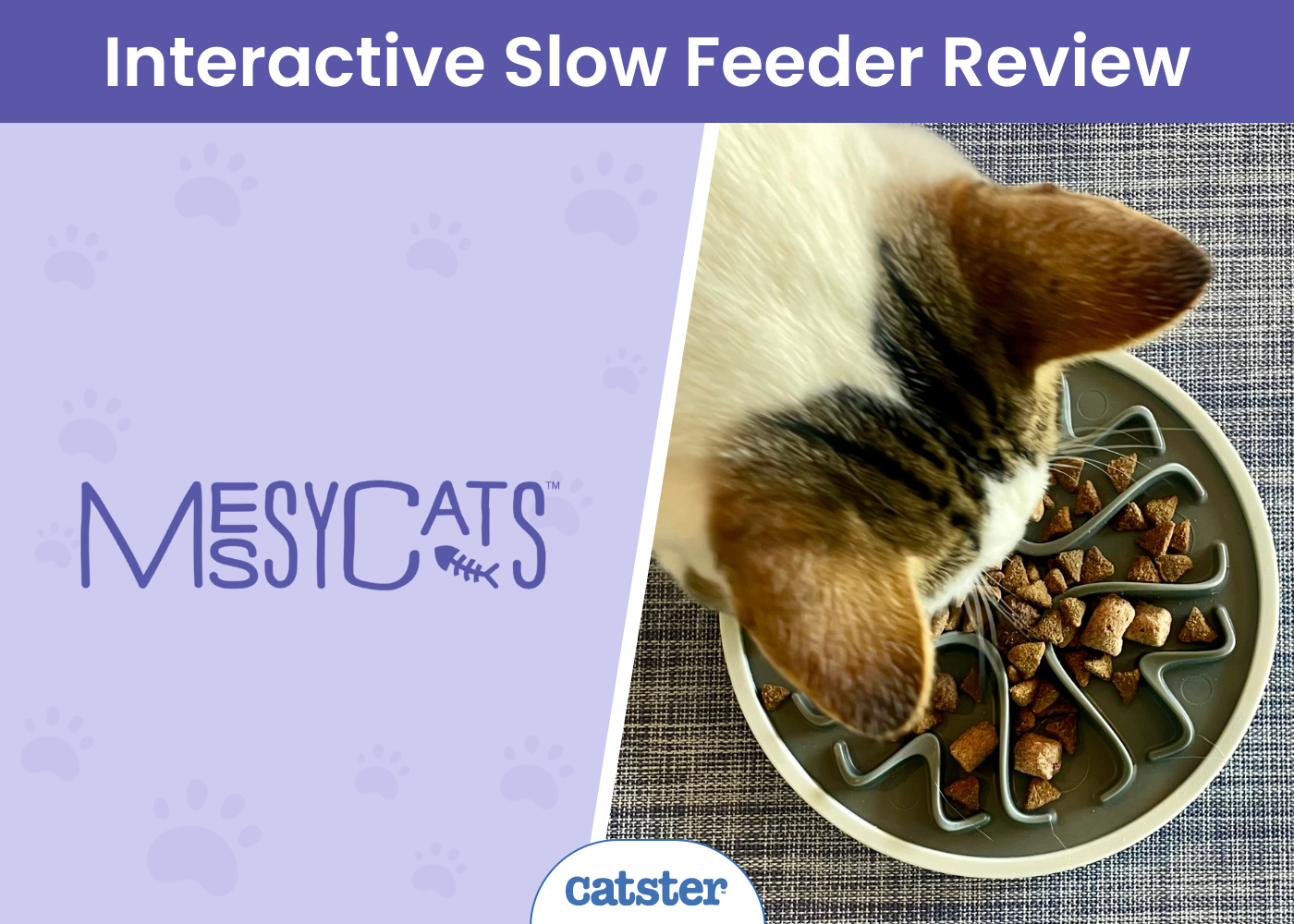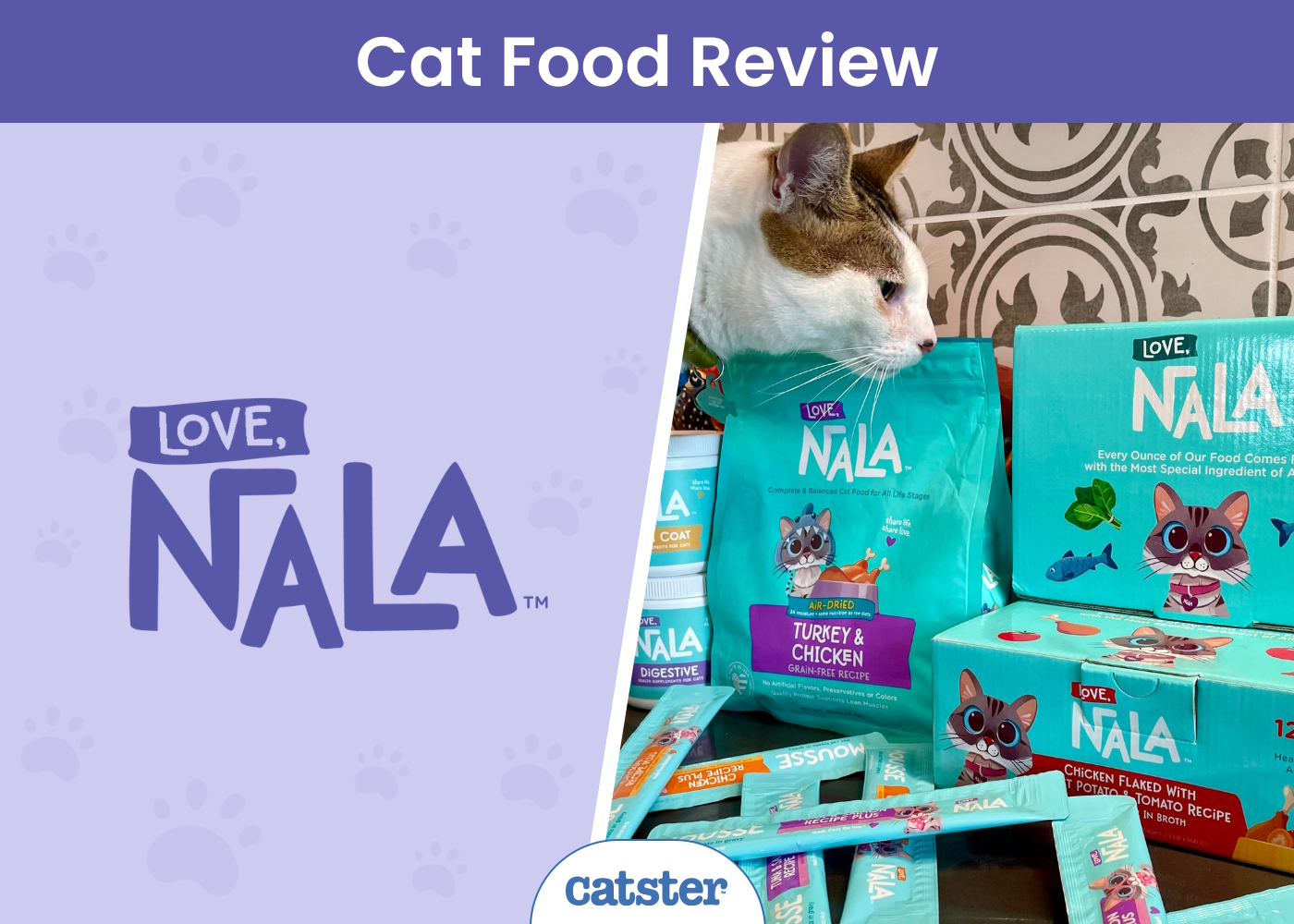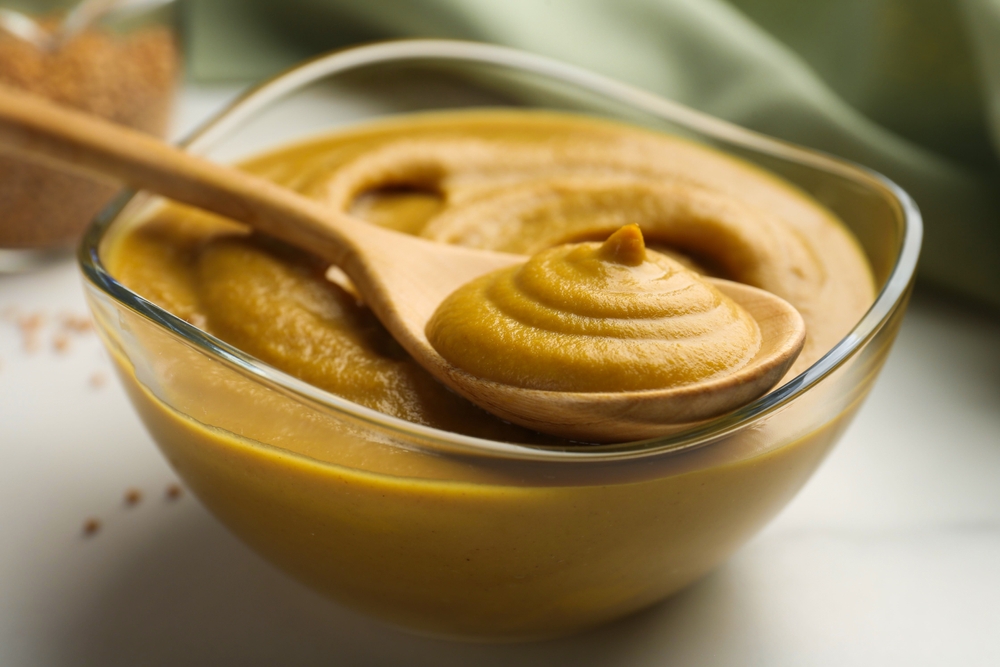Fruit is a tasty addition to a healthy diet; it provides plenty of dietary fiber and many other essential minerals and vitamins. It is well known that dogs can have small amounts of fruit as a part of their regular diet, but what about animals like cats, which are obligate carnivores? Can cats eat fruits like pears? Are pears safe for cats?
The answer is yes, even carnivores like cats can eat a vegetarian treat every now and then. However, there are a few essential factors to consider before feeding your feline pears or any other fruits. In this article, we’ll take a look at some of the benefits of feeding your cat pears, as well as some of the hazards.

Are pears safe for cats?
For the most part, pears are a healthy treat to feed your cat occasionally. The fleshy part of the fruit contains beneficial vitamins, minerals, and moisture that can be good for your feline. The seeds, however, are not safe. The seeds of pears contain cyanogenic glycosides, which can be harmful, even fatal, in large amounts. If you decide to feed your cat a piece of pear as a treat, make sure it is free from any seeds.
While pears are safe for cats in small amounts, remember that cats are obligate carnivores and do not require anything in their diet other than the nutrition provided by meat, which is sufficient for their health. However, there are nutrients contained in pears, including vitamin C, vitamin A, and plenty of healthy fiber.
Other than the seeds, there are other hazards to be aware of when feeding pears to your cat, notably the sugar content. Pears should always be given raw and fresh and cut into small, digestible pieces. Avoid canned pears since they are often swimming in sugary syrup. Even raw pears have a high sugar content and should only be given sparingly in small amounts.
Fiber is a vital part of any animal’s diet, and most fruits are high in dietary fiber, which is great for the most part. But giving your feline too much fiber could result in a laxative effect and cause diarrhea, resulting in further issues like dehydration.
Cats and sugar
Pears contain a lot of sugar, and while it’s considered by most to be a “healthy sugar” as it is not concentrated and refined, in large amounts it is still harmful to your feline. While sugar is not toxic to cats, it is still best to avoid including it in their diet as much as possible.
Most people don’t realize that cats cannot taste sweetness since they lack the receptors to detect it. Cats can taste bitterness, but they likely won’t enjoy a sweet treat like a pear anyway!
Some cats suffer from conditions like diabetes or obesity and should not have any sugar in their diet, including pears and other fruits. Sugar, even from healthy sources in the form of glucose, should only make up around 1% of their daily diet.
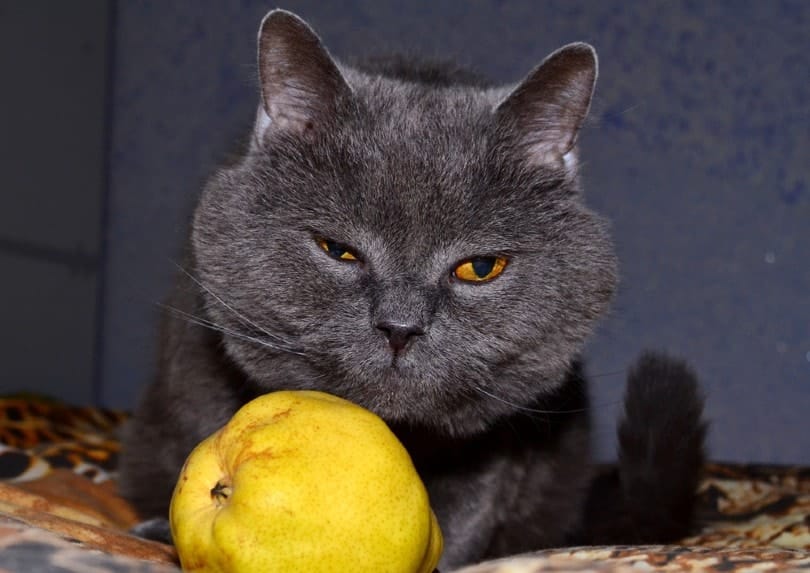
Some fruits to avoid
While pears, apples, and bananas are fine for cats in moderation, there are certain fruits that you should avoid giving your cats altogether, including the following:
- Cherries
- Grapes and raisins
- Lemons
- Grapefruit
- Persimmons

Final Thoughts
Pears are a perfectly healthy treat to give your feline in moderation. They contain a high amount of dietary fiber and essential minerals and vitamins. Be sure that the pears are fresh, the seeds are removed, and they’re cut up into small, edible pieces. The main concern with feeding your cat pears is the sugar content, which can cause serious health concerns when fed in excess. Above all, the key is moderation, and a few small pieces now and then shouldn’t do any harm and may even provide some health benefits for your feline.
See also:
- Can Cats Eat Apples?
- Can Cats Eat Prunes? Risks & Safe Alternatives
- Can Cats Eat Persimmons? Vet-Approved Advice & Benefits
Featured Image Credit: Catster.com

